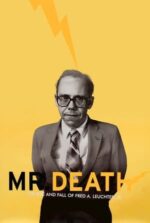Denial is a fascinating theme when explored through cinema. It's not just about characters refusing to acknowledge facts; it's also about their inability or unwillingness to see reality for what it is. From espionage thrillers to personal dramas, denial takes on myriad forms and complexities that reveal much about the human psyche.
In "Q Planes", released in 1939, director Tim Whelan presents a thrilling detective tale where three unlikely partners unravel the mystery of missing aircraft. This film is not only about the pursuit of truth but also an exploration of denial - how long can people ignore evidence before they're forced to face harsh realities? The villains use advanced technology to hide their nefarious acts, creating a world where nothing is as it seems.
Ernst Lubitsch's "Design for Living" (1933) provides another perspective on denial in the form of infidelity and unrequited love. Here, denial isn't about refusing to see facts but rather an emotional defense mechanism. Characters cling onto fantasies and wishful thinking to shield themselves from painful truths - like a husband who turns a blind eye to his wife's affair or a woman who convinces herself that her feelings aren't reciprocated.
"The Celebration" (1998), directed by Thomas Vinterberg, delves into familial denial with a potent mix of drama and dark comedy. The film follows a family gathering for their patriarch's birthday celebration, only for one son to expose long-hidden secrets during his speech. Denial here isn't personal but collective; everyone has participated in maintaining the facade of this seemingly perfect family.
Documentary filmmaker Errol Morris explores professional denial in "Mr. Death: The Rise and Fall of Fred A. Leuchter, Jr." (1999). Leuchter, a death chamber designer, finds himself at the center of controversy when he investigates gas chambers at Auschwitz for a holocaust revisionist. Denial here is linked to ideology; characters choose to ignore facts that contradict their beliefs, leading them down dangerous paths.
Denial also features prominently in dramatic narratives like "Tape" (2001), where two high school friends reunite amidst tensions and unspoken secrets. The title refers not only to the recording device used but also to the characters' denial of their past actions and feelings.
In "The Kid with a Bike" (2011), Jean-Pierre Dardenne and Luc Dardenne craft a poignant story about a young boy grappling with his father's abandonment and an inadequate guardian. Through this character, denial becomes associated with loss and vulnerability - the child's refusal to accept reality being a coping mechanism against overwhelming pain.
Denial, then, isn't just about ignoring facts; it's about how we cope with complex realities that challenge our understanding of the world and ourselves. Whether it's espionage thrillers or intimate dramas, films exploring denial offer insightful commentaries on human nature and society. They remind us that sometimes, seeing clearly requires first acknowledging what we don't want to see.




























